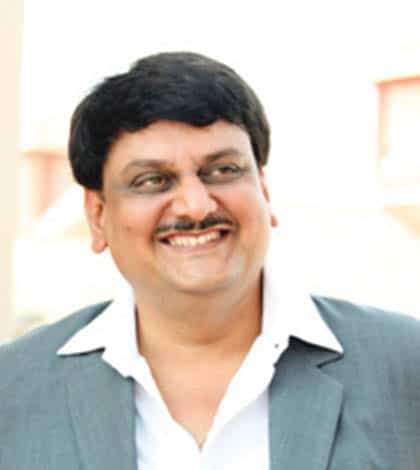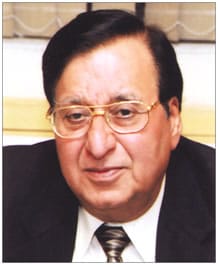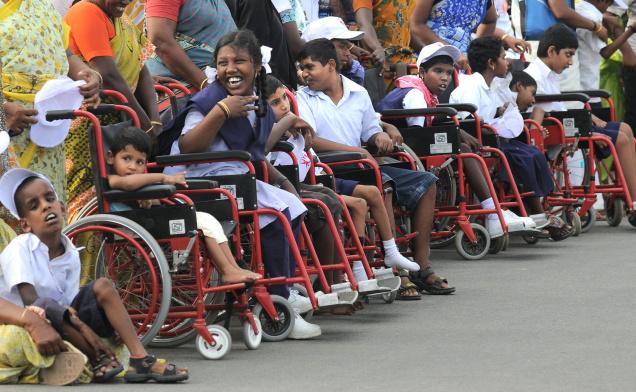 There is sufficient data in the world to prove that there is a gap between education and employment. This gap is barely understood by policy makers, administrators and educators. Dr Harsh Tank connects the dots
There is sufficient data in the world to prove that there is a gap between education and employment. This gap is barely understood by policy makers, administrators and educators. Dr Harsh Tank connects the dots
India needs to strengthen its education system with Vocational Education and Skills Development. The reasons for strengthening education system in the 21st century are many. Firstly, the 21st century as a knowledge cen- tury needs a robust system of higher learning. Secondly, if education fails, all else is likely to be adversely affected – the economy, business, industry etc. Thirdly, it is for creating knowledge workers of the 21st century that we need to empower education with respect to its relevance and its contribution to the society and national development. This is not the conjecture derived out of idle thinking. It concerns what is at stake. It is aptly captured by Dr. Ragunath A. Mashelkar:
“As I see it from my perch in India’s science and technology leadership, if India plays its cards right, it can become by 2020 the world’s number-one 86 August 2014 / digitalLEARNING knowledge production center, creating not only valuable private goods but also much needed public goods that will help the growing global population suffer less and live better.”
India’s R&D: Reaching for the Top. Science Vol. 307,No. 5714 (4 March 2005), 1415-1417
In India’s growth story, becoming ‘world’s number one knowledge production center’ is not optional. It is mandatory to accomplish it because unless there is knowledge production to suit the 21st century needs, India will never become an economic superpower. Increasingly, economic growth is directly being linked with what kind of education is provided to its youth. It is unequivocally clear that education is particularly entrusted with this responsibility of ‘knowledge production’ – that Dr Mashelkar refers to – that is beneficial to the country and to the world. For such knowledge production and knowl- edge application, the youth need to be trained for a different skills set.
The first and foremost issue regarding skill development in India is that of defining it or redefining it. While there are policy papers by Planning Commission, National Council on Skills Development and National Skills Development Corporation, the true sense of what skill development is and should be is far from being clear. In fact, we have yet to evolve a policy document in India that clearly delineates the skills for which the youth is to be trained. We have yet to come up with a policy document that defines the urgency of skill development in certain aspects and skills. We have not only poorly defined skill development as mere vocational training in India but we have completely disregarded the policies and case studies of the various countries in the world which have practiced skill dvelopment for more than half a century now. Let’s first look at how the world looks at skill development today. The World Bankputs in succinctly:
First, there has been a shift from a more narrowly defined vocational training (VT) that is dominated by technical skills to a broadly viewed technical and vocational education and training (TVET) where generic or transferable skills thrive alongside the technical (Leney 2008). The increasing focus on the so-called generic, transferable, core, or key skills lies in the fact that they can be applied across varied organizational and employment contexts (Payne 2004). Reflecting this increased focus and demand, various OECD countries have attempted to define these core skills and competencies often called “skills of the 21st century” or “higheorder skills” (Grubb 2006). While individual countries have their own nomenclature (e.g., “key” and “core” skills in Great Britain; Schlüsselqualificationem (key qualifications) in Germany, qualificaciones quiaves in Spain), the actual skills are very similar across the countries. Determined from a variety of sources such as, employer surveys and task analysis, the skills typically include problem-framing andsolving, communications skills and teamwork, information analysis, critical thinking and reasoning “skills” (Grubb 2006).
(Pre-Employment Skills Development Strategies in OECD, The World Bank, 2009, page 3) In addition to the generic versus spe- cific characterisation of skills, there is an increasing focus on hard and soft skills. Employers desire workers that possess soft or life skills in addition to hard skills. Hard skills refer to the technical and analytical competencies and know how that allow the worker to perform the mechanical aspects of a job (Batlle 2006). In contrast, soft or life skills are those “abilities for adaptive and positive behavior that enable individuals to deal effectively with the demands and challenges of everyday life. In particular, life skills are a group of psychosocial com- petencies and interpersonal skills that help people make informed decisions, solve problems, think critically and cre- atively, communicate effectively, build healthy relationships, empathize with others, and cope with and manage their lives in a healthy and productive manner (World Health Organization 2003).”
The World Bank suggests that not only are these soft skills important but today they are crucial for ‘labour productivity’ and employers are looking for these skills for their companies. Secondly, the soft skills are not the embellishment or grooming as some peo- ple in India might suggest but they are ‘high level cognitive skills’, here’s the testimony from the World Bank:
“Across the nine countries, only 43 per cent of employers surveyed agreed that they could find enough skilled entry-level workers”
As countries become richer and move up the value-added chain, the skills demanded will change. Bottlenecks will become more evident, constraining growth. Increasingly, labor productivity will depend on high-level cognitive skills (such as analysis, problem solving, and communication) and behavioral skills (such as discipline and work effort). These higher productivity skills are what employers now demand.
Behavioral skills
In many economies, employers are searching for workers who possess behavioral skills such as teamwork, diligence, creativity, and entrepreneurship, essential to thrive in today’s rapidly evolving, technologically driven globalised economies. Thus, just improving workers’ technical and vocational skills will not always meet employers’ needs— systems that build skills will also have to ensure that these added behavioral attributes are in place (page 03)
While it is evident that education can transform lives, it does not necessarily transform into employment. There is sufficient data in the world to prove that there is gap between education and em- ployment. This gap is barely understood by policymakers, administrators and even educators. It would be apt to cite the excerpt from McKinsey report titled Education to Employment: Designing a System that Works:
“Worldwide, young people are three times more likely than their parents to be out of work. In Greece, Spain, and South Africa, more than half of young people are unemployed, and jobless levels of 25 percent or more are common in Europe, the Middle East, and Northern Africa. In the Organisation for Economic Co-operation and Devel- opment (OECD) countries, more than one in eight of all 15- to 24-year-olds are not in employment, education, or training (NEET). Around the world, the International Labour Organization estimates that 75 million young people are unemployed. Including estimates of underemployed youth would potentially triple this number. This represents not just a gigantic pool of untapped talent; it is also a source of social unrest and individual despair. Paradoxically, there is a critical skills shortage at the same time. Across the nine countries that are the focus of this report (Brazil, Germany, India, Mexico, Morocco, Turkey, Saudi Arabia, the United Kingdom, and the United States), only 43 per cent of em- ployers surveyed agreed that they could find enough skilled entry-level workers. This problem is not likely to be a temporary blip; in fact, it will probably get much worse. The McKinsey Global Institute estimates that by 2020 there will be a global shortfall of 85 million high- and middle-skilled workers.” (page 11
This deepens our concerns and further exhorts us to integrate Vocational Education and Skills Development in Indian education system. The earlier we integrate the skills discussed and illustrated above, the better it is for the youth, the economy and for the society.
“Dr Haresh Tank is Director, Station-e Language Lab. In the ca- pacity of Director, he is in charge of conceptualizing and operationalizing initiatives with a special focus on Skills Development. He holds a doctorate in Statistics and is a noted Statisti- cal Analyst. He was also nominated for Young Scientist Aw ard. With a passion for teaching and contributing to the society, he continues to serve as Associate Professor in Statistics. As a Director, Station-e Language Lab, he has initiated several projects in the realm of Skills Development with Government and private companies. In addition, Dr Tank is serving as Vice Chairman, CII, Western Gujarat Zonal Council.”






































